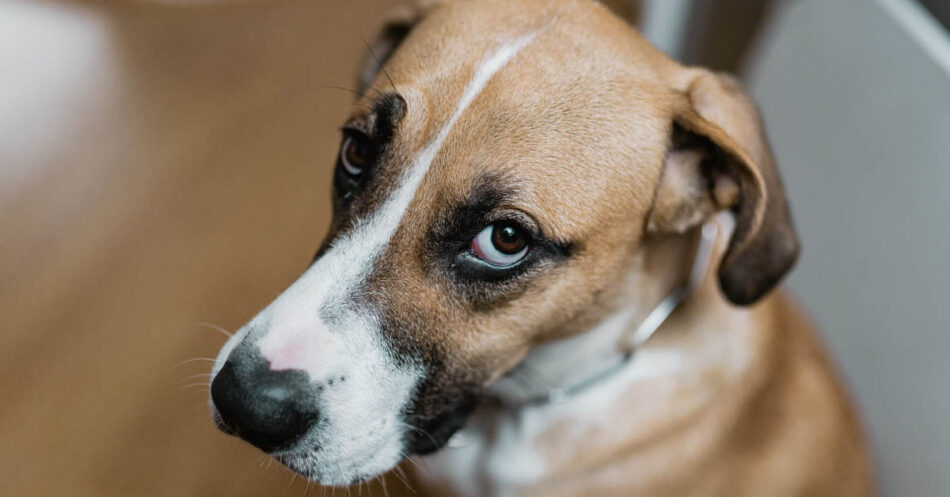
Why Do Dogs Pee in the House?
This post may include affiliate links. Please read my disclosure policy.
There are few things more frustrating than a dog peeing in the house. I can’t even begin to count the number of comments and emails I’ve seen about dogs peeing on floors, on tables, on sofas, or even on beds.
However, I know from experience that it’s possible to stop this behavior. Before you can correct inappropriate urination, it’s important to figure out why your dog might be peeing indoors in the first place. Once you find the root of the problem, you’ll be well on your way to stopping indoor peeing for good..
5 Reasons Dogs Pee in the House
You might be surprised to learn some of the reasons your dog may be peeing in the house are beyond his control! So before you blame your pup, be sure to check out all of the reasons why he may be eliminating in the house.
You might be surprised to learn some of the reasons your dog may be peeing in the house are beyond his control! So before you blame your pup, be sure to check out all of the reasons why he may be eliminating in the house.
1. Your Dog Isn’t Properly Housebroken
You may think, “But I’ve trained my dog, so why is he suddenly peeing indoors?” However, there are a few reasons why your house training didn’t stick.
If your dog is still under a year old, peeing in the house may simply mean that he’s not fully housebroken. Housebreaking a new puppy can take anywhere from a few months, up to a year for some breeds. Small dogs are notorious for being difficult to housebreak. With patience and consistency, accidents should happen less and less frequently.
An adult dog who is having accidents in the house may simply be confused about the appropriate place for him to go. Any inconsistency in his training could lead to confusion and accidents down the road. For example, dogs who are trained to use puppy pads sometimes fail to understand why they can’t pee in other places around the house.
Dogs thrive on routine. If he doesn’t have scheduled and consistent potty breaks, this can also lead to accidents, since he never knows when his next chance to pee will be.
If you find your potty-trained dog suddenly peeing inside, you’ll need to revisit his training. Remove any puppy pads in the house, and bring him outside to pee at consistent times throughout the day. Here are some more tips on how to stop your adult dog from peeing in the house.
Pin Me!

2. You’ve Made These Common Pet Parent Mistakes
A couple of common pet parent mistakes can easily contribute to your dog peeing in the house. But don’t worry, these are very easy to correct.
Not letting your dog out enough. As I mentioned, even a well-potty-trained adult dog can only hold it for so long. If you are away or distracted for hours at a time, your dog’s bladder just might not be up to the challenge. This is especially true for smaller dogs who, naturally, have smaller bladders. In addition, if you see your dog drinking a significant amount of water in a single sitting, it’s probably a good idea to let him out in the immediate future. If your work keeps you away from home for longer than your dog can manage, arranging to have someone let him out while you’re away might solve the problem.
Using a crate that’s too large. Dogs have a natural den instinct. Most dogs will avoid eliminating where they sleep (their den). The ideally sized crate will allow your pooch to stand up, stretch a bit, and turn around. It shouldn’t be so large that he has room to sleep in one corner and pee in the other.
Using the wrong cleaner. When a dog pees on the floor, it can leave a lingering scent that invites him back to repeat the behavior. You may not notice it, but human noses aren’t nearly as keen as dogs’. Using an enzymatic cleaner formulated specifically for hard floors or carpets and upholstery is the only way to get rid of the smell so that even your dog can’t detect it. That’s because it breaks the waste down completely and safely.
3. Your Dog Has a Medical Condition
Sometimes, training and parenting have nothing to do with inappropriate urination. There are a number of medical conditions that can cause dogs to pee on the floor. Some of them cause excessive thirst, which leads to excessive drinking and peeing. Others may make it painful to urinate, causing dogs to avoid going until they can’t hold it another second. A few health issues that contribute to peeing on the floor are:
- Diabetes
- Pain when squatting or lifting the leg to urinate
- A urinary tract infection
- Bladder stones
- Kidney or liver disease
- Tumors
- Cushing’s or Addison’s disease
- Adrenal gland issues
- Intestinal parasites
- Cognitive problems caused by brain disease or dementia
- Age-related illnesses and conditions
If your dog has any of these conditions, getting early treatment is vital to his health, not to mention your floors. Your dog’s veterinarian can help you to determine if he has a health condition that needs treating.
4. He’s Marking His Territory
Some dogs are more territorial than others. They don’t want to leave any doubt that a certain place or object belongs to them. We humans sometimes declare ownership by labeling or monogramming our belongings. Dogs “label” their things with their scent, specifically urine.
Urine marking occurs most frequently in male dogs that haven’t been neutered. It can also be a problem for intact females. Occasionally, even spayed females and neutered males get into the habit of urine marking, especially if it was a habit that they developed earlier in their lives before they were altered.
To learn more about urine marking and how to stop it, read this.
5. Your Dog Is Anxious or Nervous
There isn’t always a physical explanation for a dog peeing in the house. Sometimes the triggers are in their little doggy minds.
Peeing in the house is one sign of anxiety in dogs. Any situation that causes your dog to feel anxious could cause him to pee on the floor. Here are a few of the more common ones:
- Changes in routine, like a pet parent going back to work after a long hiatus at home.
- Noise from things like fireworks, thunderstorms, and traffic.
- Separation anxiety caused by being home alone.
- Changes in the environment, such as new items or furniture, items belonging to guests, or a move to an entirely new home. Your dog may not associate these things with being off-limits.
- New people or animals who may visit your home or even a new addition to the family. The arrival of a new person or pet in the home may leave your dog feeling threatened and trigger the urge to pee. Some dogs even pee in response to strange animals or people they observe walking by on the street.
In addition to separation anxiety, overexcitement sometimes triggers the urge to urinate. This is more common in puppies than in older dogs, but some dogs don’t outgrow the tendency to lose control of their bladders when they’re excited.
Submission, either to people or to other animals, causes some dogs to pee on the spot. If your dog leaves a puddle on the floor when someone is standing over him, this could be a sign of submissive urination.
If you suspect that a psychological issue is causing your dog to pee indoors, be sure to talk to your veterinarian for treatment suggestions. You can find a Veterinary Behaviorist near you using this link.
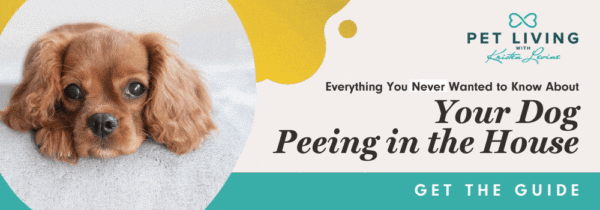
FAQs
How Do I Know if My Dog Is Marking or Peeing Due to Anxiety or Stress?
Marking behavior typically involves dogs urinating small amounts on various objects or areas to leave their scent. This can increase due to certain stressors like new changes in the household. Submissive urination, however, is characterized by a dog displaying signs of submission such as a lowered head, averted eyes, or exposing the belly, often leading to urination in response to intimidation or perceived threats.
Anxiety-induced urination might be a result of incomplete training or the dog’s inability to cope with environmental changes. It’s also possible for medical conditions to cause similar behaviors, where dogs lose bladder control due to pain, sensory decline, cerebrocortical disease, or cognitive dysfunction. Such medical issues can lead to frequent or excessive urination and loss of urinary bladder control.
How Do I Stop My Dog from Peeing in the House?
If your pup is suddenly peeing indoors, health concerns should be ruled out first with a veterinarian’s help. Certain conditions as mentioned, like urinary tract infections, bladder stones, diabetes, or arthritis, can cause this behavior. Once health issues are discounted, cleaning previous accident spots with an enzymatic cleaner like Kinderbean No Stress Mess Eraser is essential to remove odors that could attract the dog to pee in the same place again.
For behavioral concerns, consistent house training or potty training is crucial. Puppies may need more frequent potty breaks and positive reinforcement, while adult dogs, especially those already properly house-trained, might benefit from a refresher in training. Establishing a routine for feeding and toilet breaks can help, as can identifying and reducing anxiety triggers using methods like pheromone diffusers or calming treats. In cases where these strategies do not resolve the issue, you may need to consult a certified veterinary behaviorist.
Why Does My Dog Urinate When He Meets New People or When I Come Home?
Excitement urination may happen when your pup meets new people or greets his owner after a separation. This behavior is a sign of an overabundance of joy or excitement, and your pup will often pee a few drops during enthusiastic greetings. Puppies under one year old are particularly prone to this, as they may not have fully developed bladder control. As dogs grow older and become more mature, they typically learn to manage their excitement, and the associated urination should stop or subside.
To stop your dog’s inappropriate urination due to excitement, keep your greetings low-key. Don’t greet your pup for the first few minutes after arrival or avoid direct eye contact and physical touch until the dog has calmed down. This will allow the dog to settle and gradually reduce instances of excited peeing.
The Tail End
My heart goes out to pet parents who are dealing with indoor peeing problems. Please remember that there is hope for ending problematic behavior! It will take time, effort, and consistency, but your pup—and your house—will thank you for it.


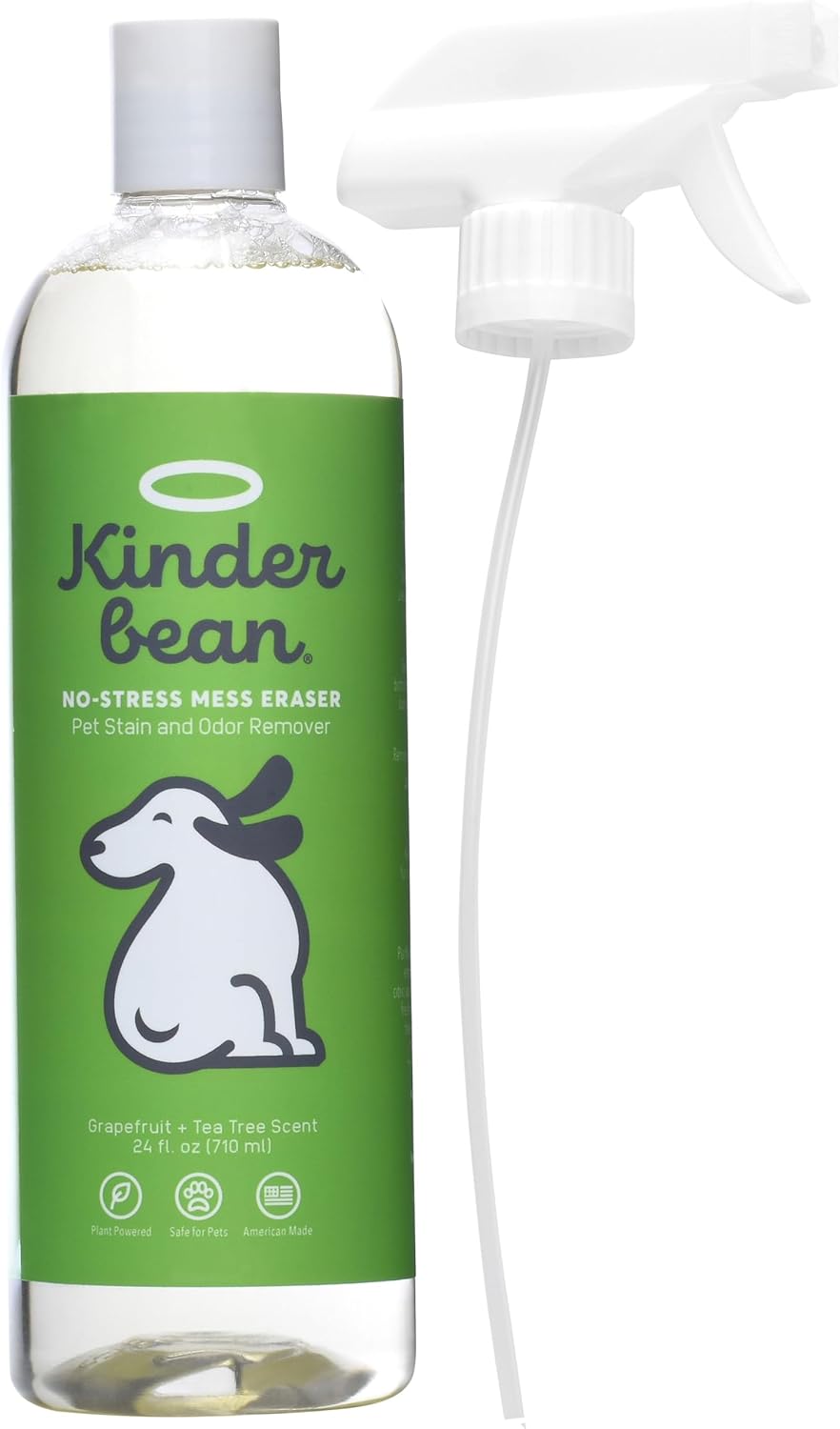
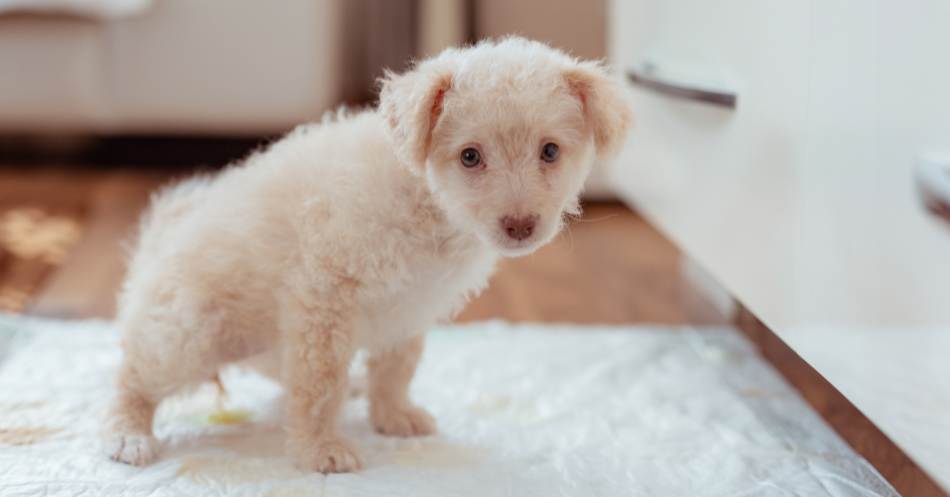
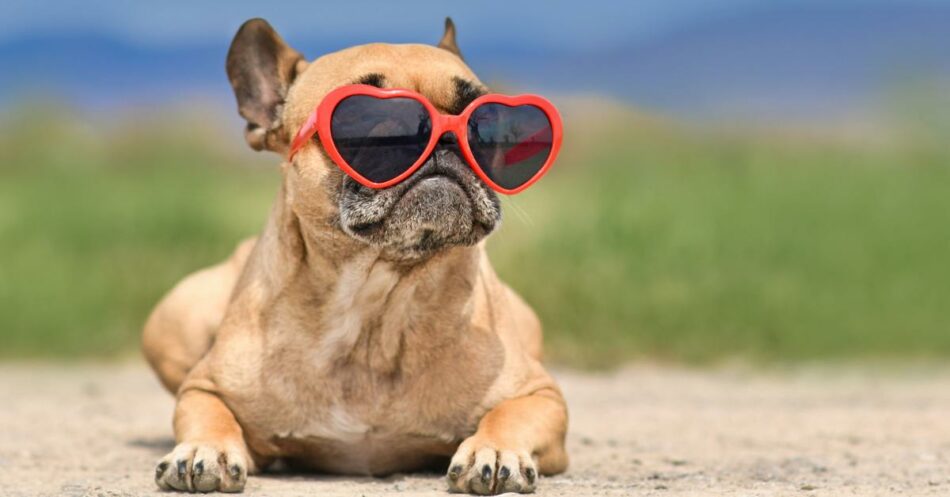
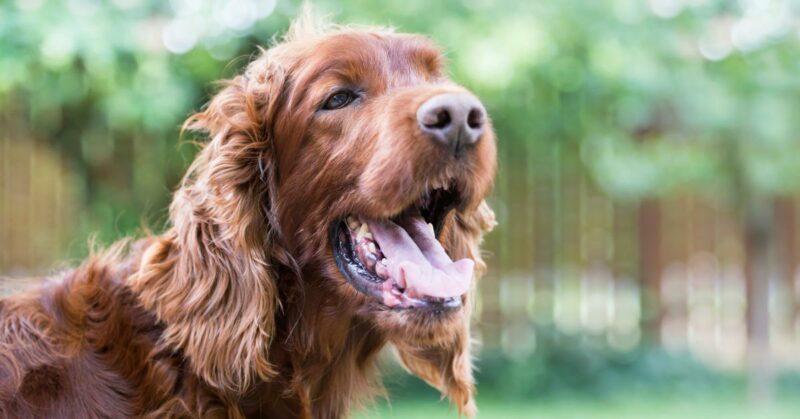
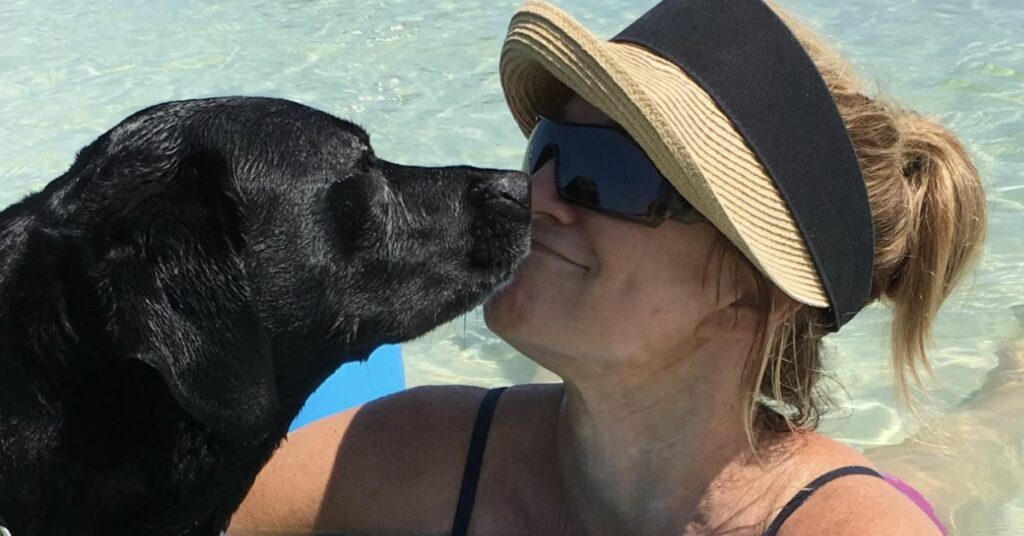
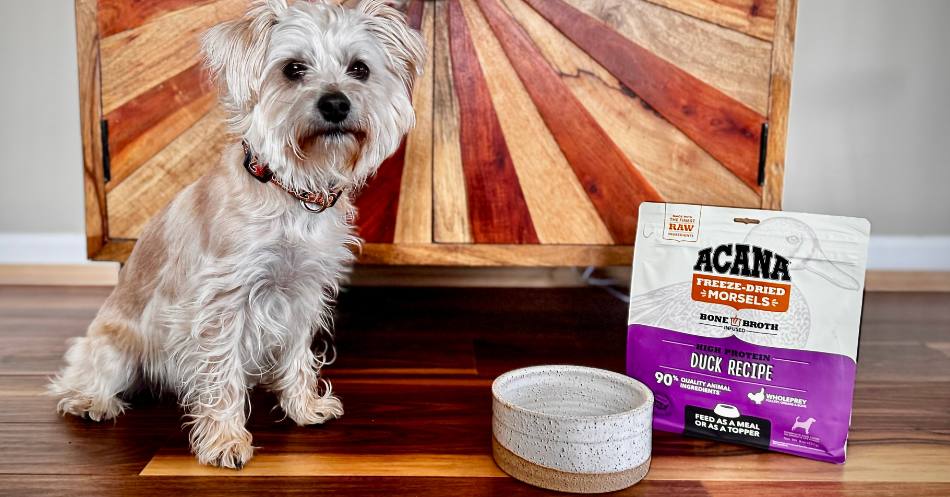
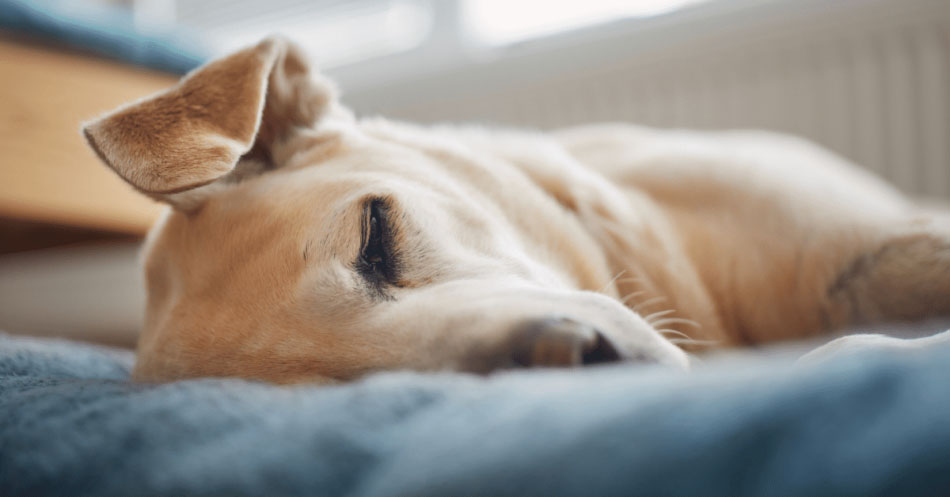
This Post Has 0 Comments